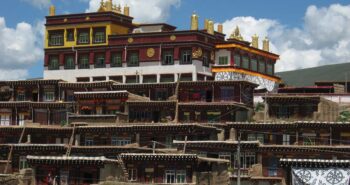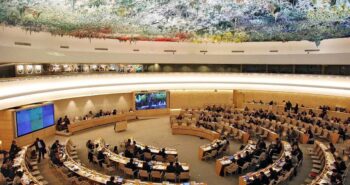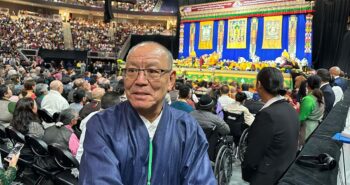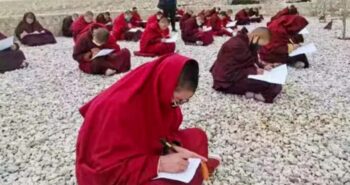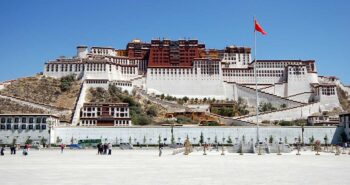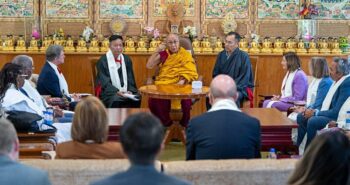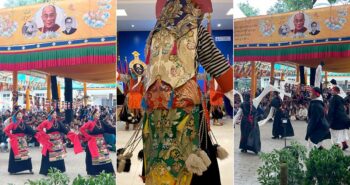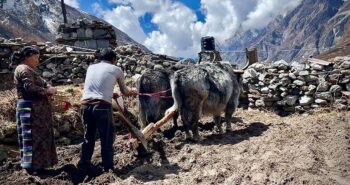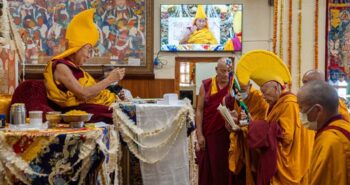Yudru Tsomu’s meticulously researched new book, Chieftains, Lamas, and Warriors: A History of Kham, 1904-1961, provides a welcome addition to narratives on Tibetan history by framing Tibet’s eastern province not as a remote periphery but instead as a crucial zone of contestation between Central Tibet and China.
As we come to the end of 2024, one interesting political development on Tibet was that on October 22, 2024 a “Joint statement on the human rights situation in Xinjiang and Tibet” by 15 countries was made at United Nations Third Committee session in New York evokes interest in quite a few ways. Here, I will only touch on the Tibet part of the statement as I am sure our Uyghur friends are themselves studying the more substantive East Turkestan (as Xinjiang is known to them) reference. The Third Committee is one of the committees of the UN General Assembly, the Social, Humanitarian & Cultural...
In August this year, I had the intensely emotional experience of attending the event in New York organized by the Tibetan and Himalayan communities to make a Tenshug (long-live prayer) offering to His Holiness the Dalai Lama who was on a visit to the United States. It was emotional for few reasons. First, the most recent visit of His Holiness to this part of the world took place way back in 2016, before the dreaded Covid19 pandemic.
A look at Tibet reveals that a new cultural revolution is taking place there. Beijing's campaign affects all areas of Tibetan life and penetrates deep into even the most private areas of people. The "Four Old Evils" that the Red Guards fought against at the time are now defined much more comprehensively, however, and those in power are no longer just targeting the traditional social elites.
With the Dalai Lama’s 90th birthday less than a year away, China is struggling to control the narrative regarding his succession. The facts are quite clear: Tibetan Buddhists have their own centuries-old methods for identifying reincarnate lamas, and international standards on human rights state that freedom of religious belief includes the right to "train, appoint, elect or designate by succession appropriate leaders.”
From July 16 to 21, the small village of Melle in the Deux-Sèvres region of France hosted a water village aimed at challenging mega-basin projects and the current agricultural model. ‘Mega-basins’ are huge open-air water reservoirs, over 70% of which are financed by public funds, and most of which pump water from underground aquifers.
In the weeks leading to Congress passing the Promoting a Resolution to the Tibet-China Dispute Act (S.138) in June and the bill's signature into law by President Biden on July 12, 2024, there was an unusually strong media interest in Tibet, particularly in India. This was further heightened by the visit of a high-level congressional delegation to Dharamsala in June to meet His Holiness the Dalai Lama and the Tibetan leadership.
From July 1st through the 6th, I had the privilege of participating in the second International Tibet Youth Forum and attending His Holiness the Dalai Lama’s 89th birthday in Dharamshala. I witnessed firsthand dignitaries, monastics, and citizens gather to recognize the Dalai Lama’s decades of dedication to compassion, preservation of the Tibetan people’s ancient civilization, and democratic freedom.
A research attempt into China’s visa practice, transnational repression and the limits to overcome the fears in Tibetan diaspora By: Simon van Dongen I am a Dutchman who is fascinated by Tibet, because of its nature and culture. A country with a two-thousand-year-old history, situated on a plateau with an average elevation of 4500 meters above sea-level. Today, Tibet is a highly restricted area. I have never been there, and I will probably never go there. Instead of travelling to Tibet I went to Nepal. Over there I met people from the Nepalese Himalayas who share Tibetan heritage. They are...
As I write this, His Holiness the Dalai Lama is in the United States for treatment for a knee problem he has been having for many years. In fact, available public information shows that as early as in 2003, His Holiness alluded to having issues with his knees.

